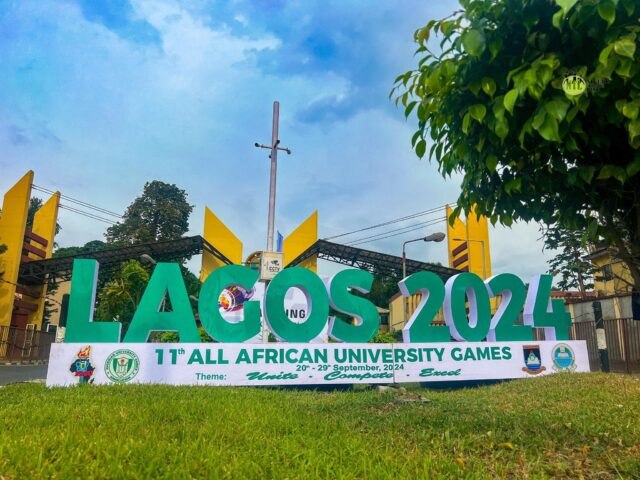Place your adverts here on InfoDig @ low rates; banner ads, sponsored links and guest articles etc. Contact us
As part of the ongoing 11th All-African University Games (FASU), co-hosted by Lagos State University (LASU) and the University of Lagos (UNILAG), the LASU management organized a cultural tour for delegates.
The tour, held on September 28, 2024, explored the historical town of Badagry, offering participants a deep dive into Nigeria’s rich history and cultural heritage.
Read Also: Olowookere Announces Flamingos’ Squad for U17 Women’s World Cup
Led by Professor Tunji Azeez, Dean of the School of Tourism, Arts, and Film Production at LASU, and Professor Setonji, the delegates first visited the Akran Palace, where they were warmly welcomed by Chief Senu Amosun, representing the Akran of Badagry.
The chief shared insights into the history of Badagry, setting the tone for the cultural exploration. Gifts were exchanged in appreciation for the reception.
The group then visited the Badagry Slave Market Museum, where they learned about the history of slavery in Nigeria and Africa.
The harrowing tales of the Vlekete slave market and the “point of no return” resonated deeply with the delegates, leaving them reflective of Africa’s past struggles.
A visit to the Mobee Royal Palace followed, where Chief Patrick Yedenu Mobee of Badagry shared more about the region’s slave history.
The delegates’ historical journey concluded with a gift presentation to Chief Mobee.
The day ended with a relaxing stop at the scenic Suntan Beach Resort, where delegates enjoyed the refreshing ocean breeze and coconut refreshments.
The tour provided a meaningful and enriching cultural experience for FASU delegates, offering them a unique perspective on Nigeria’s pre-colonial history, resilience, and cultural richness.
Post Views: 20

 2 hours ago
31
2 hours ago
31















 English (US) ·
English (US) ·